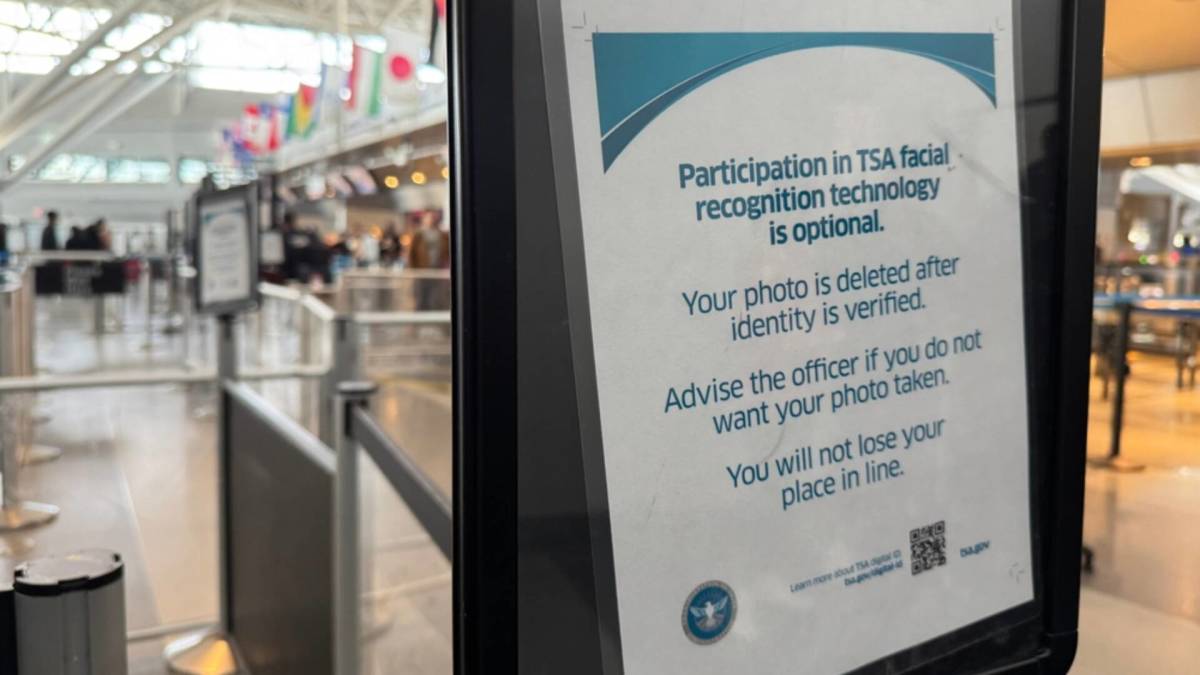Science
Companies Embrace Biometrics, Sparking Praise and Privacy Concerns

As the adoption of biometric technology expands, companies are increasingly integrating these systems for identity verification and security. The global biometrics market is projected to generate approximately $53.2 billion in revenue this year, with expectations to grow to $84.5 billion by 2029. This surge highlights the growing reliance on biometric systems in various sectors, including finance, healthcare, and retail.
The term “biometrics” refers to the automated recognition of individuals through unique physical traits such as fingerprints, facial features, and voice patterns. This technology offers numerous advantages, including quicker access to secure areas, streamlined processes, and enhanced border control measures. For instance, facial recognition at airports helps expedite passenger boarding, ultimately improving travel efficiency.
Despite its benefits, the use of biometric systems raises significant privacy concerns. Issues include the immutability of sensitive data, the risk of identity theft if this information is compromised, and the potential for system errors leading to false positives or negatives. As Pauline Kim, a law professor at Washington University in St. Louis, notes, “Biometrics could also be used in other ways, for example, to try to determine or predict disease, medical conditions, mood, etc., by analyzing digitally captured biometric information.”
Recent reports indicate that JP Morgan Chase has mandated employees at its new headquarters in New York to provide biometric data for building access. Initially planned as a voluntary measure, the requirement has sparked controversy among staff who have received communications stating that biometric access is now compulsory. This headquarters, costing $3 billion, will ultimately house up to 10,000 employees.
Major companies are already utilizing biometrics to enhance security and improve customer experiences. Apple employs fingerprint and facial recognition technology for secure transactions via Apple Pay. Similarly, Disney implements fingerprint biometrics to offer flexible access for park guests and combat ticket fraud.
Despite the growing trend, there are substantial concerns regarding data privacy. A May 29 article in the Harvard Business Review emphasized how companies can accumulate vast amounts of intimate data about their employees. Kim pointed out that the nature of the biometric data collected and the purposes for which it is used significantly influence privacy implications.
Legal restrictions on biometric data collection are currently in place in several states, including Illinois, Texas, and Washington. Other states, such as Colorado, Maryland, and New York, have integrated biometric protections within broader privacy laws. Legal expert Kevin John from Brigham Young University highlights that many individuals appear willing to trade privacy for convenience. He observes, “We see this with social media—messaging apps that allow us to stay in touch but also access microphones and other features on our phones.”
The rapid advancement of biometric technology has outpaced legal frameworks, leaving significant gaps in privacy protection. John notes, “For now, legal ramifications for the collection of biometric data may be slim—unless the argument can be steered toward framing biometric data in a medical capacity.” He suggests that while there may be a case for stricter regulations in this context, it remains a challenging endeavor.
As biometric technology continues to evolve, balancing its benefits with the imperative of protecting individual privacy will be crucial. Companies must navigate the complex landscape of data security while fostering trust among their employees and customers.
-

 Technology5 months ago
Technology5 months agoDiscover the Top 10 Calorie Counting Apps of 2025
-

 Technology2 weeks ago
Technology2 weeks agoOpenAI to Implement Age Verification for ChatGPT by December 2025
-

 Health3 months ago
Health3 months agoBella Hadid Shares Health Update After Treatment for Lyme Disease
-

 Health3 months ago
Health3 months agoAnalysts Project Stronger Growth for Apple’s iPhone 17 Lineup
-

 Health3 months ago
Health3 months agoErin Bates Shares Recovery Update Following Sepsis Complications
-

 Technology5 months ago
Technology5 months agoDiscover How to Reverse Image Search Using ChatGPT Effortlessly
-

 Technology3 months ago
Technology3 months agoElectric Moto Influencer Surronster Arrested in Tijuana
-

 Technology2 months ago
Technology2 months agoDiscover 2025’s Top GPUs for Exceptional 4K Gaming Performance
-

 Technology5 months ago
Technology5 months agoMeta Initiates $60B AI Data Center Expansion, Starting in Ohio
-

 Technology5 months ago
Technology5 months agoRecovering a Suspended TikTok Account: A Step-by-Step Guide
-

 Health5 months ago
Health5 months agoTested: Rab Firewall Mountain Jacket Survives Harsh Conditions
-

 Lifestyle5 months ago
Lifestyle5 months agoBelton Family Reunites After Daughter Survives Hill Country Floods





















